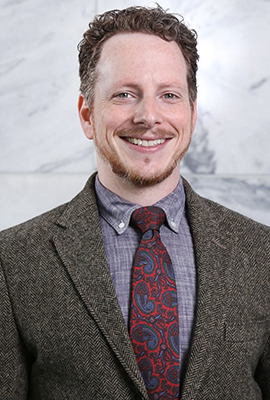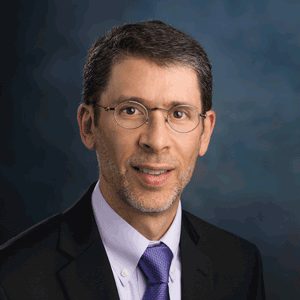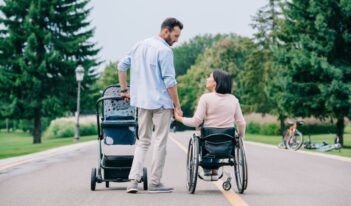
States should shift incentives to reduce nonmedical exemptions while respecting the choice not to vaccinate.
Measles is making a comeback in the United States. Despite the overall success of vaccination programs, local outbreaks of this painful and potentially deadly disease are now frustratingly routine. And measles is not alone; outbreaks of other vaccine-preventable diseases have also been on the rise.
The culprit behind these outbreaks is the decision by an increasing number of parents to opt their children out of state law vaccination requirements by claiming religious or philosophical exemptions. Once immunization levels in a particular community dip below a critical threshold necessary to establish what public health experts call herd immunity, contagion can take hold. What makes this loss of heard immunity worse is that children whose parents voluntarily refuse vaccination are not the only ones at risk. The absence of herd immunity also threatens those who cannot be vaccinated due to age or medical condition, or whose vaccine-induced immunity has waned or never fully developed.
Prominent public health advocacy groups have called on the forty-seven states that permit these nonmedical exemptions to eliminate them altogether. For several reasons, however, we do not believe that this absolutist approach is the most effective way to maintain herd immunity.
First, advocating for an end to all non-medical vaccination exemptions may be futile and is politically unwise. Only a single legislature—California’s—has eliminated nonmedical exemptions; efforts in other states to follow California’s lead have been unsuccessful due to stiff opposition. The anti-vaccination movement, though small, is highly motivated and well-organized, and it has lobbied effectively to block reform. Moreover, advocating the elimination of all nonmedical exemptions may cause a political backlash that further entrenches opposition, polarizes the public, and politicizes this vital public health issue.
Second, eliminating nonmedical exemptions would impose hidden costs, and new, tighter exemptions will be subject to workarounds. If all medically eligible children must be vaccinated to attend school, some committed non-vaccinators will elect to homeschool their children. Many homeschooled children congregate in organized social and educational activities, and concentrated groups of non-vaccinated homeschooled children are a recipe for a public health disaster. Moreover, assuming that not all non-vaccinators are well-equipped to homeschool, their children will miss out on the educational and social benefits of traditional schooling. Other committed non-vaccinators will simply shop for medical professionals who are willing to accede to their requests for a medical exemption.
Third, eliminating all nonmedical exemptions may unnecessarily encroach on non-vaccinators’ freedom of conscience. Public health policies should generally avoid coercing people into violating their own beliefs if adopting less coercive measures can accomplish the underlying policy. Before eliminating nonmedical exemptions, other means of achieving the underlying goal—maintaining herd immunity—must be explored.
We favor an alternative approach that is less coercive, likely to be less costly and more politically feasible, and potentially more effective. Instead of attempting to compel the vaccination of children whose parents have deeply held convictions against vaccination, we propose instead to nudge a different group of parents, those who decline to vaccinate based on convenience or slight preference.
In many states, it is easier to claim a nonmedical exemption than it is to comply with vaccination mandates. Simply signing a form once can be enough to obtain an exemption. In contrast, meeting vaccination requirements can require a laundry list of hurdles: missing work to take children to the doctor; witnessing one’s child in pain from the vaccinations; physically restraining recalcitrant children; transferring the correct form from the physician to the school, sometimes annually and at a cost; and bearing the psychological weight of wondering whether one is doing something dangerous to one’s children. For some busy, fence-sitting parents who are not already committed to vaccinating their children, it may well be rational to take the path of least resistance and simply fill out the exemption form—especially given that their children are quite unlikely to be infected, thanks to the choice of most other parents to comply with vaccination mandates.
To change this dynamic, states and local governments should decrease the costs of vaccination and marginally increase the costs of obtaining an exemption while encouraging informed decision-making on the part of parents. For example, offering vaccinations at schools or allowing the required vaccines to be delivered at local pharmacies could make it more convenient for parents to have their children vaccinated. Further, public health studies suggest that requiring annual trips to the doctor to review new information about the safety of vaccination marginally increases vaccination levels to a rate sufficient to develop and maintain herd immunity. Thus, simply requiring an annual consultation with a medical professional before opting out may be adequate to achieve public health goals.
By making it slightly more convenient to vaccinate and slightly less convenient to opt out, in conjunction with arming parents with relevant information about the safety and efficacy of vaccines, parents who may not have vaccinated primarily because it is the easier option or because of mild anxiety about vaccination may be persuaded to change their minds. At the same time, adopting these measures instead of banning nonmedical exemptions would respect the choice of those who are inalterably opposed to vaccination. Washington and Michigan have successfully adopted this approach and have seen substantial improvement in their vaccination rates, suggesting that it may offer a politically feasible means of achieving and maintaining herd immunity.
This essay is based on a forthcoming article, A Model Law for Nonmedical Immunization Exemptions Using the Least Restrictive Means, coauthored by Daniel A. Salmon, Stacie Kershner, Timothy D. Lytton, Hillel Y. Levin, Claire Hannan, and Saad B. Omer.





